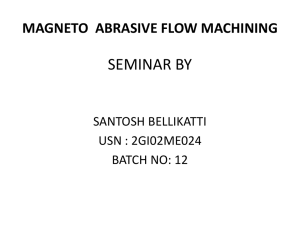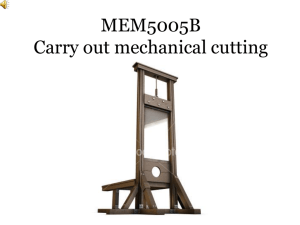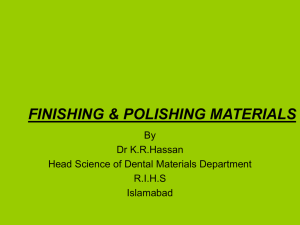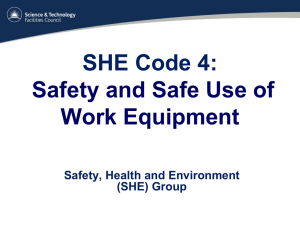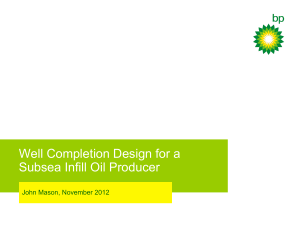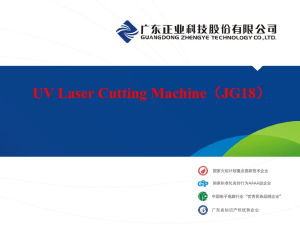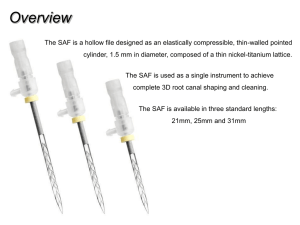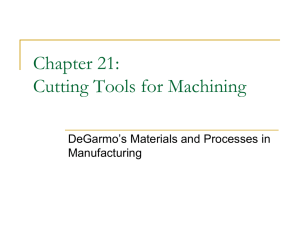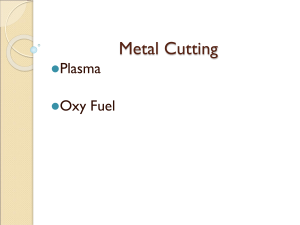Unusual Interventions
advertisement
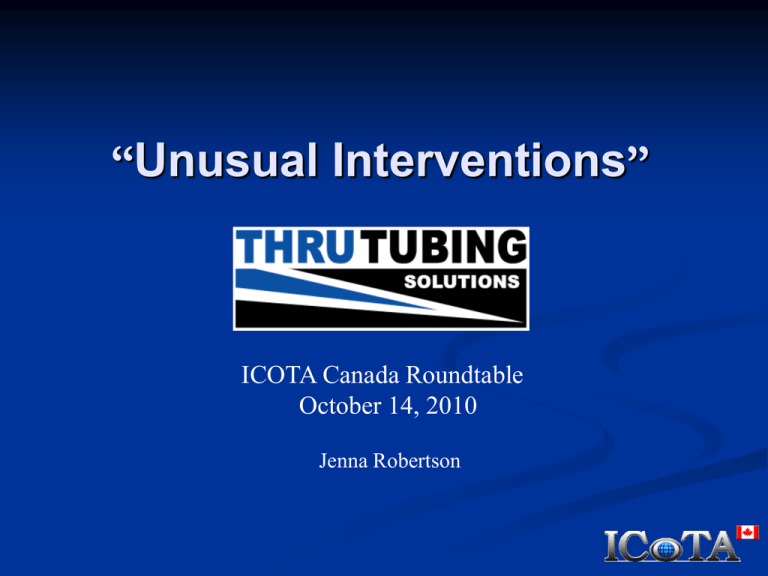
“Unusual Interventions” ICOTA Canada Roundtable October 14, 2010 Jenna Robertson Outline Introduction The use of “Unusual Intervention” methods to resolve complex well bore scenarios. Abrasive Cutting Abrasive Perforating Abrasive Slotting Case Histories BHA Design used to execute these operations Abrasive Job Requirements & Procedures Abrasive Cutting Special Port Positioning for directing an abrasive fluid jet stream into the ID of the pipe to be severed. Abrasive fluids combined with a down hole motor create a complete cut of the tubular. The abrasive fluids penetrate and severe the tubing where the jet stream makes contact. Results in a clean cut without any flaring of the tubular. Abrasive Cutting Abrasive Cutting Case Histories Coiled Tubing stuck in hole Cut at surface, rigged in 1-1/2” CT Abrasively Cut 2-3/8” CT down hole – removed string from well. Fish Hanging String w/ Internal Capillary Lines Utilize a modified Flat Catch Overshot – capable of cutting CT 2” CT has been tested in OKC, currently working on a test of 1-1/2” CT with 2 x 3/8” internal capillary lines. Abrasive Cutting Case Histories Cut Hanging String Currently designing an Abrasive Cutting assembly to cut a 1-1/2” CT hanging string 10-12” below tubing hanger Cut 4-1/2” Non-Magnetic Drill Collar Passed thru 50.8mm ID Jar Utilizing 1-1/2” CT w/ 1.95” Cutting Head Complete the cut in 60min. Abrasive Perforating The Abrasive Perforating System, allows multiple perforations to be made in the same trip in the hole. Custom tool designs available (ie: phasing, length, nozzle size) Alternative to conventional methods: Tubing Conveyed Perforating (TCP) Wireline deployed perforating Mechanical Tubing Cutters Chemical & Explosive Tubing Cutters Successful in perforating drill collars, drill pipe and multiple casing strings in a single trip. Abrasive Perforating Motor Head Assembly Swivel Orienting Sub Abrasive Perforator Wash Nozzle Abrasive Perforating Abrasive Perforating Abrasive Perforating Test Perforate thru 114.3mm Casing encased in shale rock and cement 27” + Penetration Abrasive Perforating Case Histories Casing Leaks Multiple wells with casing leaks that need to be squeezed off Dual horizontal cuts with a motor followed by perforating multiple setting between the cuts, utilizing a piston perforator. Entire procedure completed in a single trip Abrasive Slotting The Abrasive Slotting Assembly utilizes a planar perforator The # of jets can be altered, allowing a variety in phasing. Slotting can be completed in multiple stages and various lengths, simply by adjusting your work string in the hole. The planar perforator can be combined in a BHA with a cutting head to form “Coupon” cut-outs within the tubular of interest Beneficial for damaged casing, testing purposes Abrasive Slotting Planar Perforator Abrasive Slotting Case Histories Uranium Mine flooded with water Relief wells were drilled and cement squeeze performed Subsequent water influx still present – drill 4 wells and install down hole pumps to remove excess water Abrasively Slot casing to accommodate extra volume of water required to operate pumps. Parted Casing in steam injection well Perform 6 – 48” Vertical cuts between upper and lower radial cuts. Create “coupons” that will fall in and be fished out later. Modified an Abrasive Cutting Head to accommodate the High Tech Rare Earth Magnet – resulting in the “coupons” being retrieved on the same trip. Abrasive Slotting Case Histories Multilateral Jetting w/ Slotted Windows Generate 8 x 18” vertical slots Shift piston & Reposition tool string Perform 4 horizontal cuts (upper and lower) between the slotting Create 4 x 2.50” ‘windows’ w/ casing between Maintaining casing integrity Install a whip stock through the window 31.75mm CT out to high pressure jet the formation Abrasive Slotting Resulting in: 4 windows 2.5” Wide Casing Integrity Intact Whipstock Capable Abrasive Requirements & Procedure Coiled Tubing or Threaded Pipe Fluid Pump Minimum Pump Rate 80L/min per nozzle 100 Mesh Sand Slurry Mixed 100kg/m3 – 120kg/m3 ID / Weight of tubular will determine cutting time # Nozzles per cutting tool – increase flow rate Continue pumping sand slurry until cut is complete. *** Each job scenario is different, we use the above as guidelines*** Questions?
